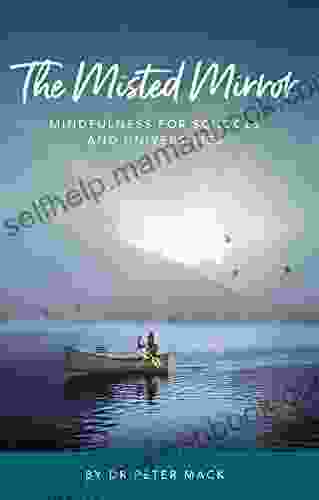The Impending Crisis in Elder Care: Diminishing Contributions from Kin and State

As the global population ages, societies worldwide are facing an unprecedented challenge: how to provide adequate care for the rapidly growing number of elderly individuals.
Traditionally, elder care has been primarily provided by family members, with the state playing a supplementary role. However, changing societal norms, the rise of nuclear families, and increased workforce participation by women have eroded the capacity of families to provide comprehensive care for their aging loved ones.
5 out of 5
| Language | : | English |
| File size | : | 3200 KB |
| Text-to-Speech | : | Enabled |
| Word Wise | : | Enabled |
| Print length | : | 304 pages |
Concurrently, government budgets are strained by rising healthcare costs and competing demands for resources, limiting the state's ability to fully meet the increasing needs of the elderly population.
The Diminishing Role of Kin
In the past, extended families often lived in close proximity and played a significant role in caring for elderly relatives. However, urbanization and geographic mobility have disrupted these traditional support networks.
Moreover, the increasing number of nuclear families, where both parents work outside the home, has reduced the availability of family members to provide hands-on care. This trend is particularly pronounced in developed countries, where the elderly population is growing at a faster rate than the working-age population.
As a result, families are increasingly relying on formal care services, such as assisted living facilities and home health agencies. However, these services can be expensive and often do not provide the same level of personalized care as family members.
The Strained State
Governments have traditionally played a role in providing elder care through social security programs, healthcare insurance, and long-term care services. However, rising healthcare costs and budget constraints are putting a strain on these programs.
In many countries, social security programs are facing financial challenges due to the aging population and increasing longevity. This has led to reductions in benefits and eligibility requirements, making it more difficult for elderly individuals to rely solely on government support.
Additionally, healthcare costs continue to rise, outpacing the rate of economic growth. This has resulted in increased cost-sharing for beneficiaries, making it more difficult for elderly individuals to afford necessary medical care.
The Looming Crisis
The combined effects of diminishing kin contributions and strained state support are creating a looming crisis in elder care. As the elderly population continues to grow, the demand for care will outstrip the available resources from both families and the state.
This crisis has far-reaching implications for individuals, families, and society as a whole.
- Increased Elder Poverty: Without adequate support, elderly individuals may face financial hardship and poverty, as they may be unable to afford the cost of care or housing.
- Reduced Quality of Life: Inadequate care can lead to a decline in physical and mental health, social isolation, and overall quality of life for elderly individuals.
- Strain on Families: Caring for aging relatives can place a significant burden on family members, both emotionally and financially. This can lead to stress, relationship strain, and reduced job productivity.
- Increased Healthcare Costs: Without access to adequate care, elderly individuals are more likely to experience preventable health conditions that require hospitalization or long-term care, leading to increased healthcare costs for society.
Addressing the Crisis
Addressing the coming crisis in elder care requires a multifaceted approach that involves both families and the state.
- Strengthening Family Support: Governments can implement policies that support family caregiving, such as paid family leave, tax incentives, and respite care programs. Encouraging intergenerational living arrangements can also promote family involvement in elder care.
- Expanding State Support: Governments need to increase funding for social security programs, healthcare insurance, and long-term care services. Innovative financing mechanisms, such as long-term care insurance, can also be explored to supplement traditional government funding.
- Promoting Aging-Friendly Communities: Creating age-friendly communities where elderly individuals have access to affordable housing, transportation, and social services can promote their independence and reduce the need for formal care.
- Technology-Enabled Care: Advancements in technology can provide new opportunities for remote care monitoring, assistive devices, and personalized healthcare. These technologies can help bridge the gap between available care and the growing demand for services.
The coming crisis in elder care is a pressing issue that requires urgent attention. By recognizing the challenges facing families and the state, and implementing innovative solutions, we can create a society where elderly individuals can live with dignity, respect, and support.
5 out of 5
| Language | : | English |
| File size | : | 3200 KB |
| Text-to-Speech | : | Enabled |
| Word Wise | : | Enabled |
| Print length | : | 304 pages |
Do you want to contribute by writing guest posts on this blog?
Please contact us and send us a resume of previous articles that you have written.
 Top Book
Top Book Novel
Novel Fiction
Fiction Nonfiction
Nonfiction Literature
Literature Paperback
Paperback Hardcover
Hardcover E-book
E-book Audiobook
Audiobook Bestseller
Bestseller Classic
Classic Mystery
Mystery Thriller
Thriller Romance
Romance Fantasy
Fantasy Science Fiction
Science Fiction Biography
Biography Memoir
Memoir Autobiography
Autobiography Poetry
Poetry Drama
Drama Historical Fiction
Historical Fiction Self-help
Self-help Young Adult
Young Adult Childrens Books
Childrens Books Graphic Novel
Graphic Novel Anthology
Anthology Series
Series Encyclopedia
Encyclopedia Reference
Reference Guidebook
Guidebook Textbook
Textbook Workbook
Workbook Journal
Journal Diary
Diary Manuscript
Manuscript Folio
Folio Pulp Fiction
Pulp Fiction Short Stories
Short Stories Fairy Tales
Fairy Tales Fables
Fables Mythology
Mythology Philosophy
Philosophy Religion
Religion Spirituality
Spirituality Essays
Essays Critique
Critique Commentary
Commentary Glossary
Glossary Bibliography
Bibliography Index
Index Table of Contents
Table of Contents Preface
Preface Introduction
Introduction Foreword
Foreword Afterword
Afterword Appendices
Appendices Annotations
Annotations Footnotes
Footnotes Epilogue
Epilogue Prologue
Prologue Anne Schlosser
Anne Schlosser Brian David Scates
Brian David Scates Timothy Andrews Sayle
Timothy Andrews Sayle Nigel Salmon
Nigel Salmon Anna Garnet
Anna Garnet Joshua Hale Fialkov
Joshua Hale Fialkov Sarah Andersen
Sarah Andersen Louise Boyd Cadwell
Louise Boyd Cadwell Evan Ryan
Evan Ryan Stu Jones
Stu Jones Michael Chaskalson
Michael Chaskalson Tasha Squires
Tasha Squires Steven Kotler
Steven Kotler Marjori Krebs
Marjori Krebs Melanie Harlow
Melanie Harlow Emmaleigh Loader
Emmaleigh Loader Nikos Ordoulidis
Nikos Ordoulidis Oprah Winfrey
Oprah Winfrey Arthur Rackham
Arthur Rackham Amanda Montell
Amanda Montell
Light bulbAdvertise smarter! Our strategic ad space ensures maximum exposure. Reserve your spot today!
 Gage HayesFollow ·11.1k
Gage HayesFollow ·11.1k Aron CoxFollow ·2.9k
Aron CoxFollow ·2.9k Easton PowellFollow ·16.2k
Easton PowellFollow ·16.2k Lawrence BellFollow ·15.2k
Lawrence BellFollow ·15.2k Cristian CoxFollow ·18.1k
Cristian CoxFollow ·18.1k Cade SimmonsFollow ·8.8k
Cade SimmonsFollow ·8.8k Victor TurnerFollow ·18.2k
Victor TurnerFollow ·18.2k Casey BellFollow ·7.3k
Casey BellFollow ·7.3k

 Boris Pasternak
Boris PasternakThe Misted Mirror: Mindfulness for Schools and...
What is The Misted...

 Holden Bell
Holden BellEmbark on Thrilling Adventures in the Uncharted Depths of...
Unveiling the Enchanting...

 Seth Hayes
Seth HayesDelphi Complete Works of Lucan: Illustrated Delphi...
This meticulously edited...

 Jackson Hayes
Jackson HayesThe Enigmatic Cat Burglar: Unraveling the Intriguing...
In the annals of crime, the name Bernie...

 Quentin Powell
Quentin PowellAligned With The Cisa Review Manual 2024 To Help You...
The CISA Review Manual 2024 is the most...

 Austin Ford
Austin FordUnlocking Revenue Potential: A Comprehensive Business...
In today's digital...
5 out of 5
| Language | : | English |
| File size | : | 3200 KB |
| Text-to-Speech | : | Enabled |
| Word Wise | : | Enabled |
| Print length | : | 304 pages |












